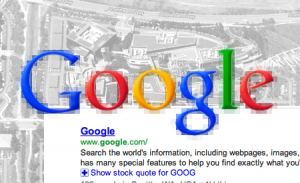It’s Not What You Do, but What You Don’t …
 I finished Steve Jobs’ biography this weekend and while I found a lot of elements of his life interesting (people who have discussed this with me already know I was somewhat shocked to learn that Jobs could seemingly tear-up over a really well-made sandwich) one of the most intriguing anecdotes for anyone working in mobile UX came late in the book. Jobs is essentially on his deathbed and is making nice with many of the tech titans with whom he famously clashed.
I finished Steve Jobs’ biography this weekend and while I found a lot of elements of his life interesting (people who have discussed this with me already know I was somewhat shocked to learn that Jobs could seemingly tear-up over a really well-made sandwich) one of the most intriguing anecdotes for anyone working in mobile UX came late in the book. Jobs is essentially on his deathbed and is making nice with many of the tech titans with whom he famously clashed.
In a throwaway paragraph biographer Walter Isaacson describes a final interaction with Google co-founder and Larry Page, “who lived less than three blocks away, had just announced plans to retake the reigns of the company from Eric Schmidt.” Jobs has essentially declared war on Google for the perceived sleight of Android, but what Issacson doesn’t mention is that both Page and his co-founder Sergey Brin originally wanted Jobs as the CEO of Google and that Jobs obviously saw an echo of his own interactions retaking Apple from CEO John Sculley who he felt had diluted the products. Jobs’ describes the advice he gave …
“The main thing I stressed was focus. Figure out what Google wants to be when it grows up. It’s all over the map. What are the five products you want to focus on? Get rid of the rest, because they’re turning you into Microsoft. They’re causing you to turn out products that are adequate but not great.”
Indeed the past few months since Page has taken the helm it has been easy to notice the dramatic slashing or reformulating of uninspiring products: Google Reader’s previous incarnation (much beloved by a certain wonky set, but unremarkable), Sidewiki, Buzz and a host of others. What’s obvious here is that Page has in some ways taken Jobs’ advice to heart, and that fact makes Google a very sharp competitor but it also makes them more user-experience focused.
One of the gratest challenges we face in the profession of mobile user experience is the “kitchen sink syndrome” where clients, developers and yes, even UX designers make a choice that they will not make any choices. This is where you hear warning phrases like, “This should be able to scale indefinitely,” or where you start adding feature that stray from the core log line of your initial project.
Mobile real estate is precious and, much like the early days of the web, every drop of bandwidth counts when networks are strained and yet customers expect speed on par with the desktop experience. As with Google’s software and Apple’s product lines: it’s not so much what you do, but what you chose not to do that makes the biggest difference in a mobile user’s experience with your product. Psychologically, we know users are more likely to be dissatisfied with tons of features poorly executed than a limited feature set which is flawless, and yet by our own nature there’s a tendency to pile on the toppings.
Keep your eyes on the prize and, as Jobs says, stay focused.